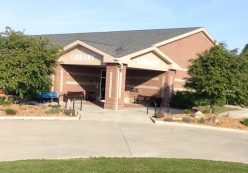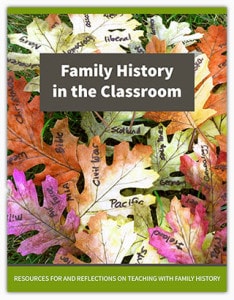The PCPL Special Collections Department is open during most regular business hours at the Petersburg Branch only.
Archiving COVID19 In Pike County
The PCPL is inviting residents to record and share their personal experiences during the COVID19 pandemic to be preserved for generations to come. Donations will be added to the collection to document the local effects of this global crisis. Such materials become invaluable to future historians and genealogists, so we are seeking to collect a variety of perspectives and accounts of the current events.
Please email if you would like to be added to an email list to stay informed about when and how to transfer your materials to the library.
- The library will be able to accept donations under the following guidelines:
- Journal/diary entries, narratives, letters, poetry, and other written forms, handwritten or typed
- Typed documents may be printed by the donor or emailed to the library for printing
- Originals are preferred, but scans or photocopies of originals are also accepted
- Photographs (printed on photo paper or computer paper)
- Drawings and other graphic arts in a 2D paper format up to 9”x14”
The department has microfilm and microfiche readers and a microfilm/microfiche printer for use. Machine use is free, however, there is a nominal cost per print fee.
The library is happy to offer research fees. Please contact the library via email for current rates for research services at: genealogy@pikeco.lib.in.us.
Genealogy databases and resources:
Pike County Public Library Genealogy Weebly page which houses all of the photographs that have been digitized by our Genealogy department.
Indiana Memory is a collaborative effort to provide access to the wealth of primary sources in Indiana libraries, archives, museums, and other cultural institutions. It is a gateway to Indiana’s history and culture found in digitized books, manuscripts, photographs, newspapers, maps, and other media. As a portal to the collections, Indiana Memory assists individuals to locate materials relevant to their interests and to better appreciate the connections between those materials.
Linkpendium is a 10,000,000+ resource directory to everything on the Web about families worldwide and genealogically-relevant information about U.S. states and counties. We cover both free and subscription sites, with a strong emphasis upon free resources provided by libraries, other government agencies, genealogical and historical societies, and individuals.
USGenWeb – USGenWeb was established in 1996 by a group of genealogists who shared a desire to create online centers for genealogical research. Each of our literally thousands of web sites have been created and are maintained by volunteers. Some of the offerings you’re likely to see in these diverse and creative sites include query boards, listings of local sources for records, county and state histories, online genealogy books, research tips, maps, and links to helpful internet resources. You’ll even find transcribed records online, accessible for free from the comfort of your home. Our Special Projects, such as the nationally-recognized Tombstone Project, assist in the effort to gather these record transcriptions. The USGenWeb Archives are a major repository of data, which is provided by helpful contributors – people just like you!
FamilySearch is dedicated to preserving important family records and making them freely accessible online. Our work is worldwide and has involved collaborations with more than 10,000 archives and partners in over 100 countries.
The Ancestor Hunt is an online resource to help researchers with links to many types of resources from newspapers to divorce records and yearbooks. The site also provides tips on how best to use each resource.
Cyndi’s List has been a trusted genealogy research site for more than 25 years. Cyndi’s List is free for everyone to use and it is meant to be your starting point when researching online. Cyndi’s List has categorized & cross-referenced index to genealogical resources on the Internet. A list of links that point you to genealogical research sites online. A free jumping-off point for you to use in your online research. A “card catalog” to the genealogical collection in the immense library that is the Internet. Your genealogical research portal onto the Internet.
Olive Tree Genealogy has more than 1,900 pages of free genealogy records to help you find your brick-wall ancestors and build your family tree. Genealogy records transcribed for Olive Tree Genealogy and will help you find your elusive ancestor. Allow yourself lots of time to look around.
One Step – This site contains tools for finding immigration records, census records, vital records, and for dealing with calendars, maps, foreign alphabets, and numerous other applications. Some of these tools fetch data from other websites but do so in more versatile ways than the search tools provided on those websites.
The Civil War Soldiers and Sailors System (CWSS) is a database containing information about the men who served in the Union and Confederate armies during the Civil War. Other information on the site includes histories of Union and Confederate regiments, links to descriptions of significant battles, and selected lists of prisoner-of-war records and cemetery records, which will be amended over time. The CWSS is a cooperative effort between the National Park Service and several public and private partners whose goal is to increase Americans’ understanding of this decisive era in American history by making information about it widely accessible.
The DAR Genealogical Research System (GRS) combines a number of databases of DAR membership information into a single search interface. While the public version of the GRS is free and accessible from anywhere, researchers who use this collection from inside the DAR Library have access to additional search features, collections, and images that are not freely available outside the DAR Library.
The ACPL Genealogy Center is a unique and valuable resource for the Northeastern Indiana community and the entire genealogical community at large. We have one of the largest research collections available, incorporating records from around the world.
The New York Public Library recently enhanced access to all public domain items in Digital Collections so that everyone has the freedom to enjoy and reuse these materials in almost limitless ways. Explore 901,767 items digitized from the collections. This site is a living database with new materials added every day, featuring prints, photographs, maps, manuscripts, streaming video, and more.
Browning Genealogy and Local History Center: Since 2005, Browning Genealogy has been chronicling obituaries and local history from additional counties in Southern Indiana, Northwestern Kentucky, and Southeastern Illinois. The Browning Genealogy staff continues adding new entries to the database on a daily basis, including obituaries from 11 counties in Indiana, as well as two counties in Illinois and 15 counties in Kentucky. We aim to continue Mr. Browning’s legacy through preservation, education, community engagement, and outreach. This database is free of charge and provides the public the same services for surrounding counties that have been provided for Vanderburgh County since 1999.
The National Archives website has articles, finding aids, webinars, and other information about our records and how to conduct research in our holdings. Additionally, we have a growing number of digitized records available online through the National Archives Catalog and in AAD that are useful for researching family history online.
Find A Grave: Find the graves of ancestors, create virtual memorials or add photos, virtual flowers and a note to a loved one’s memorial. Search or browse cemeteries and grave records for every-day and famous people from around the world.
BillionGraves is the world’s largest resource for searchable GPS cemetery data, and is growing bigger and better every day. You can help by collecting headstone images from local and other cemeteries, and then by transcribing the personal information found on the images.
Hoosier State Chronicles: We seek to provide free, online access to high quality digital images of Indiana’s historic newspapers by digitizing our collection, and assisting other organizations in making their collections digitally available. The Indiana State Library Newspaper Division has the largest collection of Indiana newspapers either in print, microfilm or digital format. The Indiana titles digitized through NDNP are also available at the Library of Congress’s Chronicling America, along with over 8 million newspaper pages from around the United States. You can find additional digitized Indiana newspapers in Indiana Memory.
The purpose of elephind.com is to make it possible to search all of the world’s digital newspapers from one place and at one time. Elephind.com allows you to simultaneously search across thousands of articles using key words and phrases.
Newspapers.com is the largest online newspaper archive consisting of 641 million+ pages of historical newspapers from 20,700 newspapers from around the United States and beyond. Newspapers provide a unique view of the past and can help us understand and connect with the people, events and attitudes of an earlier time.
The Atlas of Historical County Boundaries is meant to be a resource for people seeking records of past events, and people trying to analyze, interpret and display county-based historical data like returns of elections and censuses, and for people working on state and local history projects. The special interests of those potential users range from history to demography, economics, genealogy, geography, law, and politics.
Pike Think GIS: The purpose of this map is to display the geographic location of a variety of data sources frequently updated from local government and other agencies. Neither WTH Technology nor the agencies providing this data make any warranty concerning its accuracy or merchantability. And no part of it should be used as a legal description or document.
Bureau of Land Management(BLM), General Land Office (GLO) Records Automation web site. We provide live access to Federal land conveyance records for the Public Land States, including image access to more than five million Federal land title records issued between 1788 and the present. We also have images of survey plats and field notes, land status records, and control document index records.
DPLA is free to use and open to all. Our collection, with items from many institutions, offers a unique research resource for family historians and genealogists. Use our Search Tips to get the most out of your DPLA experience! You may be interested in searching for family names in DPLA, but don’t stop there. DPLA also offers the opportunity to dig deeper and add context to the lives of our ancestors, exploring questions such as: What was discussed at my ancestor’s local political club meeting?, What did downtown Memphis look like in the 1910s when my family lived there?, What route did my fortune-seeking ancestor take to California during the Gold Rush?
Genealogy Gophers: Search 80,000 genealogy books.
Ancestry K-12 Lesson Plans
We provide lesson plans ranging in topic from the American Revolutionary War to the 1940 U.S. Federal Census to help you integrate historical records into lesson plans, teach students how to manage research projects, approach critical thinking and gain the communication skills needed in life. These Lesson Plans have been written by teachers according to the History Standards administered by the National Center for History in the Schools at the University of California, Los Angeles under the guidance of the National Council for History Standards.
Welcome to PreservationDirectory.com – the online resource for historic preservation, building restoration and cultural resource management in the United States & Canada. Our goal is to foster the preservation of historic buildings, historic downtowns and neighborhoods, cultural resources and to promote heritage tourism by facilitating communication among historic preservation professionals and the general public.



